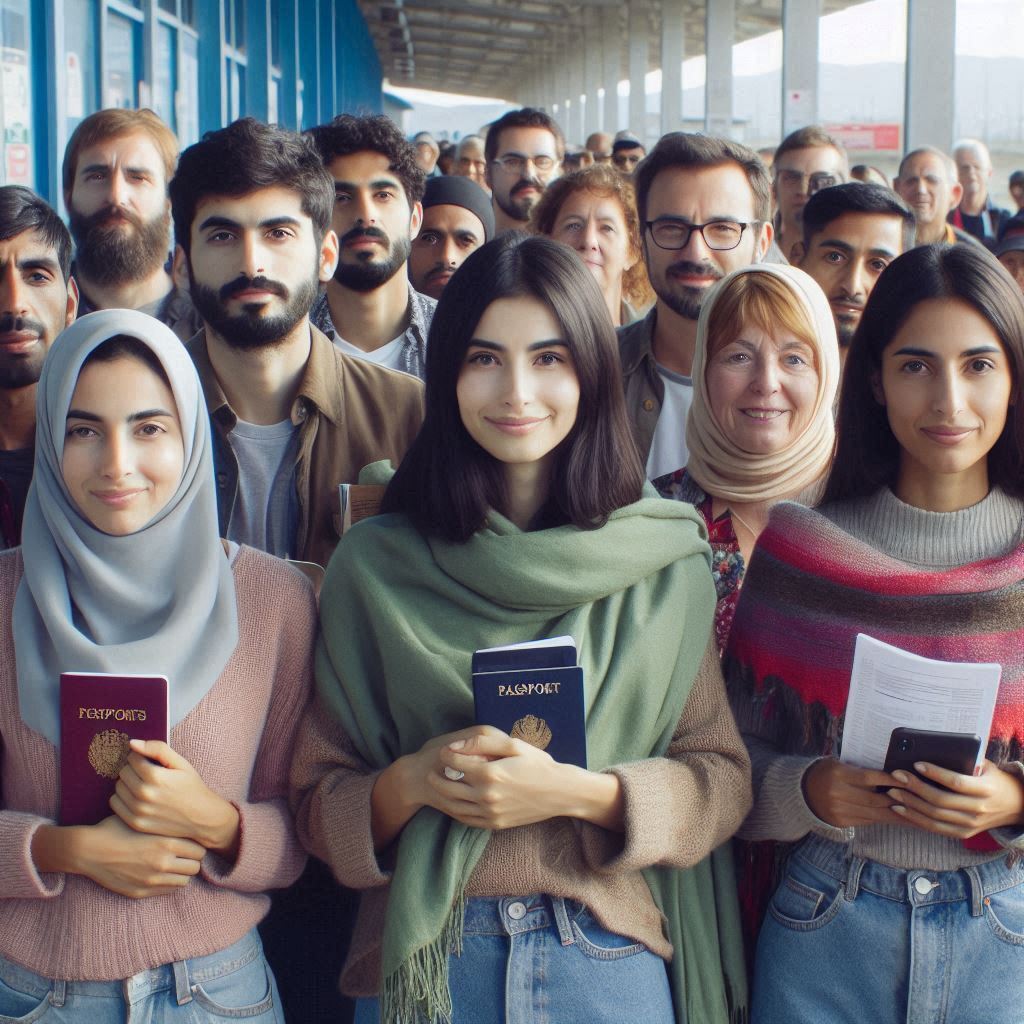India and Pakistan’s ties have always been complicated and frequently characterized by tensions over politics. Nonetheless, there has been a sizable immigration from Pakistan to India notwithstanding previous obstacles. This article seeks to give a summary of immigration from Pakistan to India by examining the causes of this movement, the effects, and the difficulties that immigrants encounter on their way.

Historical context
The 1947 division of British India, which led to the establishment of Pakistan and India, influenced migration between the two countries. During this time, a lot of families were uprooted and many crossed countries based on their faith. Individuals and households from Pakistan have moved to the nation over the years for a variety of causes such as pursuing higher learning, job prospects, and reunions with relatives.
Family reunification
Family reunion is one of the main drivers of immigration from Pakistan to India. Families were split apart by the 1947 Indian partition, with relatives ending themselves on opposing sides of the border. People from both nations have migrated over the border as a result of their need to be reunited with their relatives. Immigration between the two countries is still mostly motivated by the desire to be reconciled with loved ones.
Economic opportunities
In search of better economic prospects, people from Pakistan have been drawn to India by its expanding economy, varied sectors, and welcoming atmosphere for entrepreneurs. Numerous immigrants from Pakistan have started their own companies or obtained jobs in industries including commerce, tourism, and data science. People travel to the country with the hope of finding better employment opportunities and having more earning possibilities.
Educational pursuits
Pakistani students are drawn to India’s esteemed educational establishments, which are globally recognized. Indian universities provide a vast array of academic possibilities and programs, and Pakistani students come to the country for higher education to obtain high-quality degrees. Partnership in a range of educational fields is encouraged and mutual comprehension is fostered via learning interchange between the two countries.
Socio-cultural impact
Both India and Pakistan have seen sociocultural changes as a result of immigration. India’s traditional fabric is enhanced by the language, customs, and social norms that immigrants from Pakistan bring with them. The celebration of Pakistani holidays, such as Independence Day and Eid, within the Pakistani population adds to the heterogeneous makeup of Indian culture. This cross-cultural interaction promotes tolerance and appreciation for different viewpoints.
Challenges faced by immigrants
For people moving from Pakistan to India might create several difficulties. Acquiring a visitor’s permit or permission legally can be a difficult and drawn-out procedure that calls for following immigration laws and submitting supporting evidence. While immigrants learn to negotiate emerging social standards, languages, and practices, cultural adjustment and acceptance can often present difficulties. On the other hand, community organizations and assistance systems are essential in helping immigrants adjust and integrate.
Bilateral relations and immigration policies
Immigration laws are heavily influenced by India and Pakistan’s diplomatic relations. Visa requirements and the ease of traveling between the two nations are impacted by the political situation and security worries. Certain types of visas, such as work authorizations, pupil visas, and family reunion visas, are intended to make legal immigration easier. The administrations of both nations routinely assess and adjust these regulations to tackle security issues while guaranteeing the seamless movement of individuals between them.
Conclusion
India’s immigration from Pakistan has been influenced by financial, family, and historical considerations. People and families are still looking for chances for prospering economies, learning, and family reunification amid the complicated connection between the two countries. Pakistani immigrants promote cross-cultural interaction and comprehension by adding to the cultural richness of Indian culture. Support networks and neighborhood associations are essential in helping immigrants settle and integrate, despite some obstacles. People who cross the boundaries and cultural divide between Pakistan and India add to the common history and goals of the two countries.
You may also find these articles helpful
